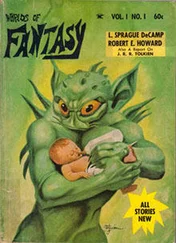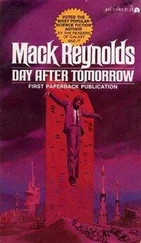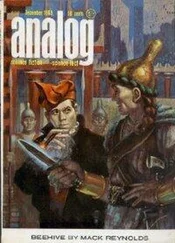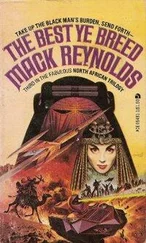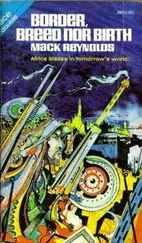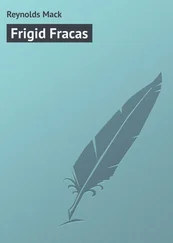Tracy thought about it. “Damned if I know.”
“Well, take your pick.”
Tracy said, “Well, one thing that’s always intrigued me was the gardens of Hasan Ben Sabbah.”
Jo Edmonds said, “Never heard of him. Stretch out on the bed here. You can do this yourself, after the first time. I’ll show you how.”
Tracy obeyed orders. “Nothing can go wrong, eh?”
“Nothing can go wrong.”
Edmonds put electrodes on both of Tracy’s eyes and one at the nape of his neck. “The idea is,” he explained “to send low-frequency pulses to your cerebral cortex. All right, now tell all you know about this Hasan-whatever-his-name-was and about those gardens of his.”
Tracy said, “I read a biography about him while I was in a concentration camp. Hasan Ben Sabbah was a contemporary of Omar Khayyam, the poet. In fact, they went to school together and were friends. Hasan became head of the Persian sect of the Ismailian Moslems and began a reign of terror in the country. He seized the castle of Alamut on a mountain just south of the Caspian Sea, and it was there he built possibly the most fabulous gardens ever known. When the Crusaders came, he was known to them as the Old Man of the Mountain. He became the most powerful force in Persia. This is how his system worked. He would take one of his younger, stronger—and more stupid, it’s to be assumed—men and feed him some hashish. The follower would pass out and when he awakened find himself dressed like a Prince from the Arabian Knights. He would be in beautiful gardens the fountains of which gushed wine, supposedly forbidden by Allah on Earth, but available in abundance in paradise. The walks of these fabulous gardens were graveled with precious and semiprecious stones. The buildings were probably similar to those later erected by the Moors in Spain in Grenada, the Alhambra.
“The follower was a simple Arab. He probably came from a small desert town, or had been born in nomad tents. This to him was inconceivable. The most water he had probably ever seen in his life would have been only enough to quench his thirst. He had probably never been clean before in his life. But the baths and fountains here were everywhere. On top of all else, there were eight of the most beautiful women he had ever even dreamed of, and they came in a wide selection of flavors. And they all adored him. They were obviously the houris promised by Mohammed for each man when he entered paradise. They were supposedly not truly human—because the Moslem woman does not enter paradise, but only the man—but each was more beautiful than any woman on Earth. At least, the Hasan follower must have thought so, probably never having seen a truly beautiful woman in his life, certainly not unveiled.
“On him they pressed the most delicious food he had ever eaten. They vied for his favors. They continued to ply him with hashish. They played exotic music for him, sang softly to him, saw he was most comfortable on his cushions. And, above all, they submitted him to every sexual act known at the time… and they knew as much then as ever before or after.
“Before he became seated, they gave him still more hashish so that he passed out again. When he awakened, he was back in the presence of Hasan Ben Sabbah, in that worthy’s throne room. The follower was again in his original dirt and rags, and probably had a hangover, at least a slight one, from the unaccustomed wine, the rich food, the sex, and the hashish.
“Hasan explained to him gently that he had just been to paradise, just as a sample of what would be his for all eternity if he but followed the commands of Hasan Ben Sabbah, leader of all the faithful Ismailians. Upon death, in the service of Hasan, he would immediately return to paradise and his eight houris. Obviously, the simple countryman swore devotion.
“Hasan would then dispatch him to assassinate this vizier, this sheik, or that emir, who was currently standing in the way of Ismailian ambitions. When it comes to assassination, there is little defense against a man who is willing to die in the attempt. Or, if there was a successful defense against the first one, another assassin came, and a third, and a fourth. And finally the proposed victim either got the message and made his peace with Hasan, or, sooner or later, he fell to the knives of the assassins.
“The origin of the word assassin is debated. It is evidently either derived from ‘Hasan’ or ‘hashish’ the drug he befuddled his followers with.”
“To use your favorite term, Jesus Christ,” Jo Edmonds said. “Just what do you want to dream doing in this garden of Hasan Ben Sabbah?”
Tracy said, “I want to enter it exactly as did his drugged followers. I’ll have to be able to speak Arabic or Persian, or whatever it was they spoke in Omar Khayyam’s time. Either that, or whoever I meet will have to speak English.”
“That’s no problem,” Edmonds said. “All right. Here you go.” He reached over to the small table beside the bed and flicked a switch.
Tracy was seated on a large, elaborately carved low wooden stool which was highly encrusted with jewels and inlayed with mother-of-pearl. The cushion he sat upon was embroidered with gold thread and with pearls. He was dressed in silken, baggy trousers, a richly embroidered vest-like jacket, wore a red silken turban on his head, and was shod in beautifully soft suede slippers, the toes of which turned up.
He had no memory of his past and, for the moment, no interest in anything save his immediate future. Somewhere in the near distance was the sound of swirling music.
He came to his feet and made his way in that direction. He was slightly high but not to the point where any of his senses were dulled. In fact, all of his senses were highly alert. The path which he followed was graveled with highly colorful stones of a score of varieties. He stooped and picked one up. It was a beautiful black opal, polished. Pleased with it, he put it in the dark velvet sash which encircled his waist, then stooped again and picked up a red stone which flashed light quite brilliantly. A garnet, or possibly a ruby, he thought. But it didn’t please him as much as the black opal had and he tossed it away. He stooped still once again and picked up an oval-shaped green stone. It came to him that it must be jade. Something flickered in his mind, a memory, but he rejected it and proceeded along the walk rubbing the piece of jade between a thumb and forefinger.
The path passed a fountain. In its center was a golden lion which spouted from its mouth some red fluid. There was a golden cup sitting on the fountain’s edge. It was beautifully worked and encrusted with cut jewels of red, blue, and green rubies, sapphires and emeralds.
He took the cup up, dipped it into the fountain, and then sipped at the contents. A red Bordeaux, very similar to Chateau Haut-Brion, he decided, although his memory gave him no inkling of where he had ever tasted the French wine. Though the drink was superlative, he didn’t pause to sample it further, but put the cup down and continued his way toward the music.
There was heavy natural fragrance in the air, undoubtedly due to the profusion of flowers. He could recognize only a few of them: roses, violets, lilacs, jasmine, bougainvillaea. The roses were in various colors and all surpassingly large and perfect; there was no sign of wilt on any of them.
There were hedges, ferns, trees of various species, including palm, all perfectly trimmed. The grass on the lawns was as that on the putting greens of a first-class golf course, though, once again, his mind refused to bother with the matter of where he had seen a golf course.
He passed several small buildings in the Persian tradition from the days of Tamerlane. Bougainvillaea, jasmine, and ivy climbed the walls; there were domes of blue, green, and gold tile; the doors and windows were horseshoe shaped, sided with pink-hued marble.
Читать дальше


